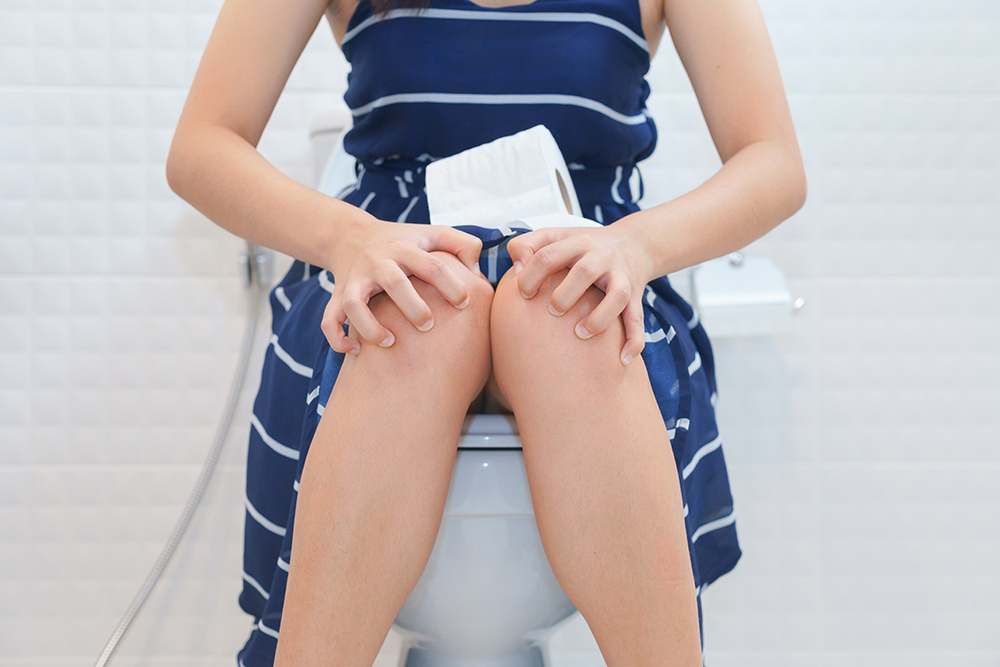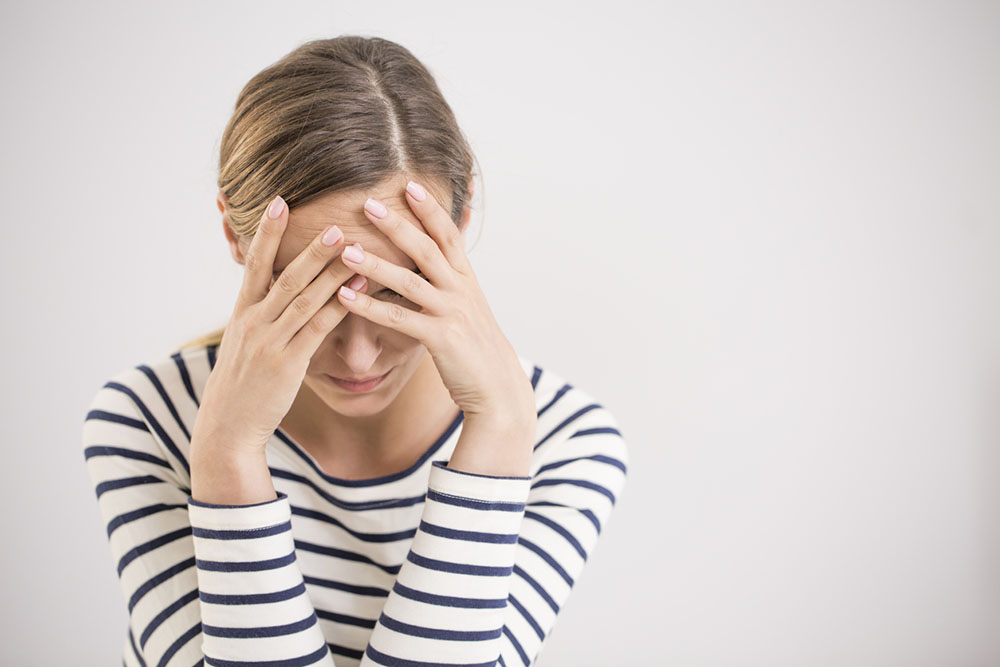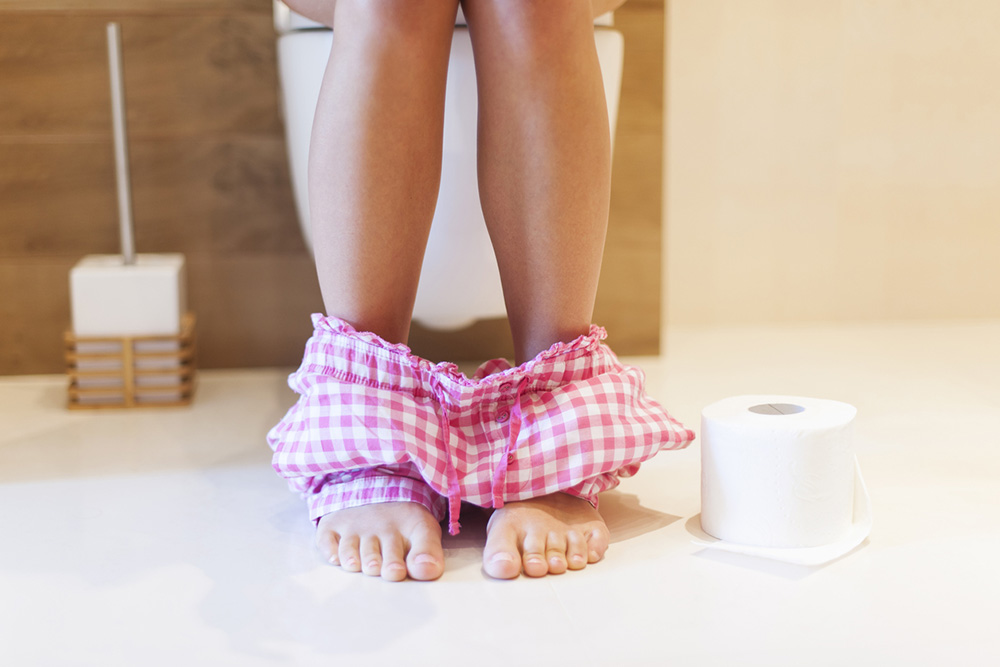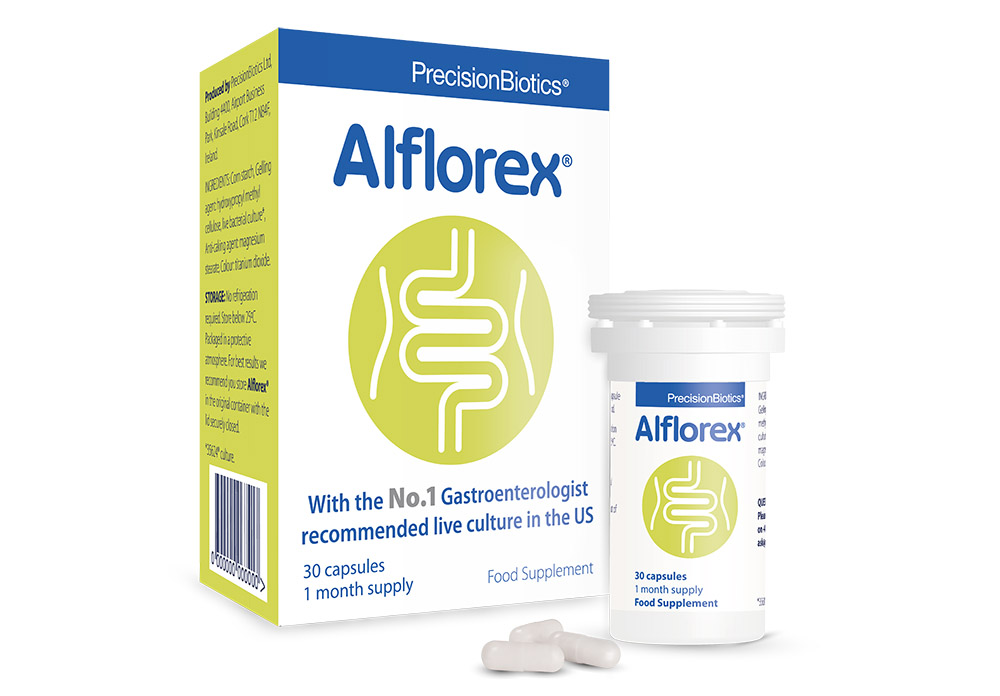Dr Pixie McKenna has essential need-to-know advice for anyone wanting relief from the bloating, cramping and other embarrassing symptoms of IBS – as told to editor Anna Magee
Dr Pixie McKenna is best known for her role as straight talking GP in Channel 4’s Embarrassing Bodies. Totally unshockable – if Dr Pixie hasn’t seen it, it hasn’t happened.
Now, Dr McKenna is urging women with gut problems – anything from bloating to full-blown Irritable Bowel Syndrome (IBS) – to come forward and empower themselves with the crucial information that could help alleviate their problems.
Forget embarrassment and describe your stools
‘We have one in five in the population – and twice as many women as men – who have IBS,’ says Dr McKenna. ‘I see several of them a day but what we’re not seeing is the silent majority sitting at home, thinking nothing can be done.
‘Patients have this idea that there is no cure for IBS but that doesn’t mean there aren’t things that can be done that have been shown to really help reduce symptoms.’
Of course, it can be ridiculously embarrassing to describe your stools to your family doctor, but Dr McKenna assures us, she has seen it all, and it’s essential for a gut diagnosis.
‘I want to know exactly what people’s bowel movements are like because that is the crucial information I need to figure out not only whether your IBS is constipation- or diarrhoea- dominant or whether you need to be investigated for serious bowel issues such as Crohn’s Disease or ulcerative colitis.’
You need to be investigated
Your stools also hold crucial information about any potentially serious underlying problems that need to be investigated, that may be presenting themselves as gut symptoms.
‘We need to know if there is blood in your poo as this could be a sign of Inflammatory Bowel Disease or even bowel cancer,’ she says.
Likewise, if you’re a woman over 45 who has suddenly developed the symptoms of IBS, you need to be investigated for more serious medical conditions such as ovarian cancer, Dr McKenna asserts.
Part of it is in your head
In a 2014 review in the World Journal of Gastroenterology authors say, ‘More and more clinical and experimental evidence showed that IBS is a combination of irritable bowel and irritable brain’.
‘There’s a very close relationship between your gut health and your mental health,’ says Dr McKenna. ‘Stress is very much a driver for IBS symptoms because of something called the gut-brain axis through which whatever is going on in your mind has a direct impact on your gut.
‘So if you think your doctor is brushing you off with ‘don’t be so stressed’ he/she is referring to the proven link between stress and IBS.’
Dr McKenna suggests anything that will help you relax as an antidote from acupuncture and yoga to hypnosis and Cognitive Behavioural Therapy (CBT).
Indeed, while most people will sign up for such therapies privately, if your condition is serious enough to be referred to a gastroenterologist, there may be a clinic near you that can provide access to CBT and other relaxation therapies as part of your treatment.
There is a diet for it
Diet can make a big difference to IBS, says Dr McKenna. ‘We used to tell everyone to eat plenty of fibre but now we know that while low-fibre diets can be bad news for those with constipation-dominant IBS, they’re better for those with diarrhoea-dominant IBS.’
Indeed, guidelines from the National Institute of Clinical Excellence suggest reducing fibre intake for diarrhoea (as well as reducing caffeine, alcohol and carbonated drinks) and increasing it for constipation.
It’s worth checking for an intolerance too, Dr McKenna suggests. ‘Those with lactose intolerance could see their symptoms improve by finding dairy alternatives,’ she suggests. ‘But food intolerance tests can be unreliable so cutting out the food, keeping a food diary and then looking at re-introducing the food and seeing if you get symptoms – ideally, with the help of a dietitian – is often the best way to figure out an intolerance.’
But by far, the diet with the most evidence for IBS is the low FODMAPS diet. The term stands for Fermentable Oligo-, Di-, Mono-saccharides and Polyols, a group of compounds found in everyday foods that exacerbate the signs of IBS.
‘The low FODMAPS diet has a lot of evidence for its effectiveness and shows that about 80 per cent of people will have some improvement on it,’ says Dr McKenna.
Trouble is, FODMAPS are in so many everyday foods including oats, legumes, and many fruit and vegetables including broccoli and cauliflower that it can be difficult to stick to, even if it means alleviating your symptoms.
The low FODMAPS diet has a lot of evidence for its effectiveness and shows that about 80 per cent of people will have some improvement on it
‘I would always recommend doing the diet with a low FODMAP diet trained dietitian because it’s complicated and difficult to stick to – but it does work,’ says Dr McKenna.
In fact, a 2016 review published in the journal Gastroenterology and Hepatology looked at the results of six randomised controlled trials comparing low FODMAP approached to IBS with placebos and concluded that the diet should be considered a first line of defence in patients with IBS – specifying that it should be done with the help of a dietitian.
‘The low-FODMAPS is not a diet you would stay on long-term but more designed to be done for 2-6 weeks before moving onto 8-12 weeks of a re-introduction plan,’ says Dr McKenna.
Your doctor may be able to refer you to a dietitian or find one at the British Dietetic Association.
Exercise works (especially if constipation is your issue)
Studies have repeatedly found that exercise can have a hugely beneficial effect on the symptoms of IBS, Dr McKenna asserts. This study from 2011, found that just 30 minutes vigorous activity 3-5 times a week alleviated patients’ symptoms by 51 points on a symptom scale, compared to just five points in those who were inactive.
Exercise encourages peristalsis, which is movement in your gut and can have a big impact on IBS, especially if constipation is your issue, Dr McKenna says. ‘Fast walking, jogging, swimming, cycling – anything that gives the heart and lungs a workout will also give the bowel a workout too.’
A probiotic can really help (but do your research – well, we’ve done it for you)
Probiotics are live bacteria and yeasts promoted as having various health benefits, according to the NHS. If you haven’t read the hype about them, where have you been?
They’re usually added to yoghurts or taken as supplements, and are often described as ‘good’ or ‘friendly’ bacteria. While probiotic yeasts and cultures occur naturally in fermented foods such as sauerkraut, kimchi (Korean pickles) and kefir (and Eastern European cultured milk drink) – high in beneficial bacteria), probiotics are also sold as supplements.
But not all probiotics are created equal, says Dr McKenna. ‘The word probiotics is a generic term for bacteria that replicate the good bacteria that live in your guts.
‘What we do know of some products on the market is that by the time they have reached the gut, they have either been nuked by your stomach acid and so are either useless or not proven to be as effective as they claim to be.
A new probiotic launched last year called Alflorex is the result of more than 15 years of clinical research and 75 leading scientific publications, she points out.
It contains a probiotic strain called B. infantis 35624 which specifically targets and alleviates the symptoms of IBS. In the US, this strain is the number one probiotic recommended by gastroenterologists for the treatment of IBS. It also has clear evidence from trials with people, that it survives alive through the gut.
‘There are many different strains of probiotics and some have different niches,’ says Dr McKenna. ‘For example, there are strains for those who have gastroenteritis after holidays, strains for people who get recurrent yeast infections and so on.
‘The B. infantis 35624 strain has been the subject of massive studies specifically showing its effectiveness for IBS in particular, what is called a precision probiotic, meaning it targets the symptoms of IBS only.
‘The key is to read the label and cross reference it the scientific research on the strain you’re taking – otherwise you might not even be taking something shown to survive the digestion process!’
Among the numerous clinical studies showing the effectiveness of B. infantis 35624 was a fascinating one done on 362 female patients with IBS.
Half were given a placebo and half were given B. infantis 35624 to take and their IBS symptoms were monitored daily. The research, published in the American Journal of Gastroenterology found that at the end of the four weeks the women taking the B. infantis 35624 saw their symptoms significantly improve, especially abdominal pain, constipation, bloating and wind.
There are many different strains of probiotics and some have different niches
At the end of the eight week trial, those taking B. infantis 35624 saw improvement in bloating, abdominal pain and constipation
In another study, 77 sufferers of IBS were randomly assigned to receive a supplement of another probiotic strain, Lactobacillus UCC4331 or B. infantis 35624 (the one in Alflorex). At the end of the eight week trial, those taking B. infantis 35624 again saw an impressive improvement in symptoms of bloating, abdominal pain, constipation compared to the other supplement.
This probiotic is super-easy to take too, Dr McKenna points out. It’s one small flavourless capsule, taken once daily anytime during the day (with or without food) and for those that struggle with capsules or for the younger ones (Alflorex may be taken from 12 months), the capsule may be open and its contents mixed with water, milk or natural yoghurt.
While the makers say you should start to feel a difference within two weeks, they suggest you keep taking one tablet daily indefinitely to ensure your symptoms don’t return (NICE guidelines suggest staying on your probiotic for at least four weeks if you have IBS). One month’s supply – 30 capsules – costs £24.95 (83p a day) at Boots stores nationwide and online.
Related Healthista Content:
Bloating made me look pregnant – here’s what finally helped – Chloe Madeley’s story
Could a fermented milk drink cure your depression and IBS?
How intermittent fasting helped this writer lose 4kg in four weeks and ALL her IBS cramps
Like this article? Sign up to our newsletter to get more articles like this delivered straight to your inbox.

























































